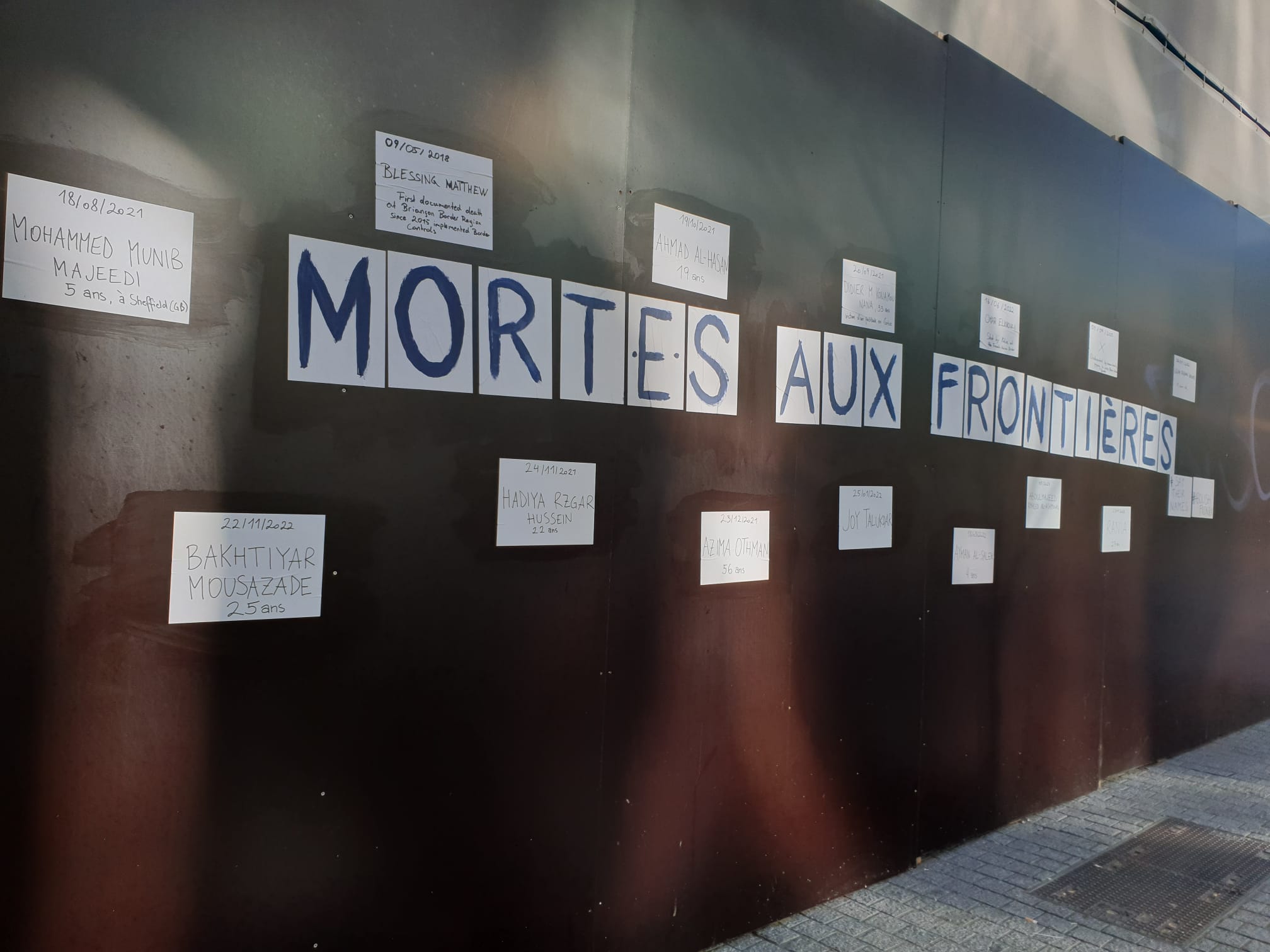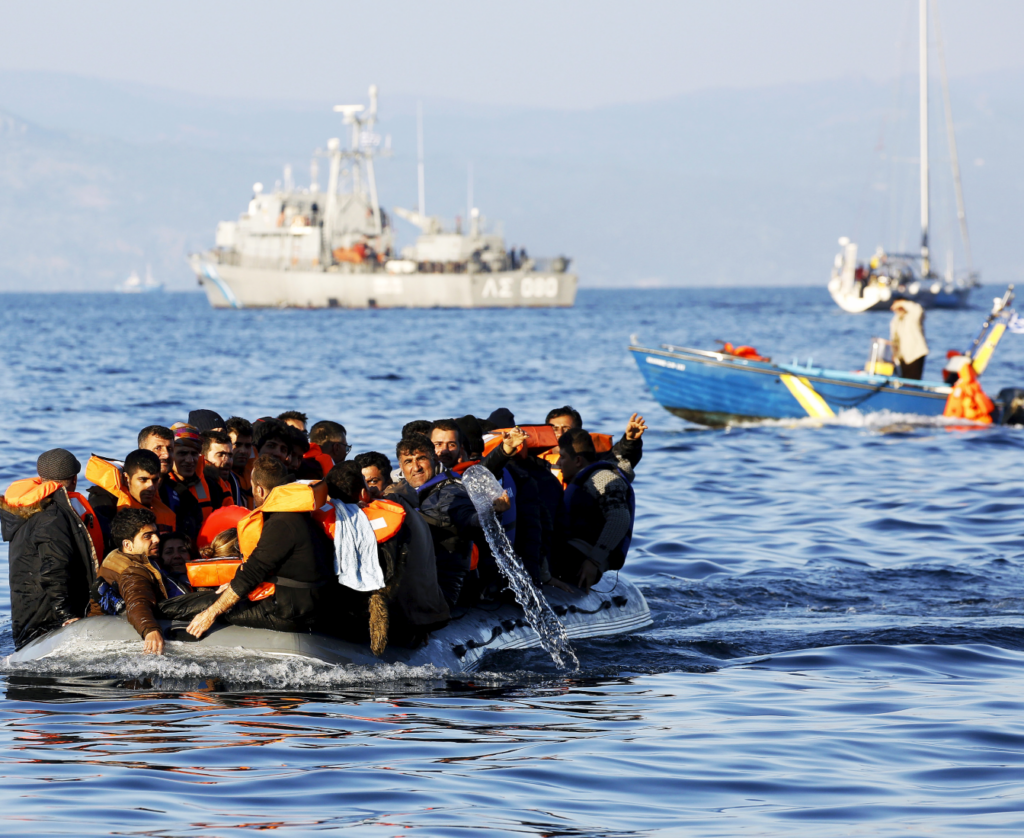At least 225,533 pushbacks of migrants were carried out at Europe's external borders last year, killing at least 77 people. New figures highlight that illegal mismanagement has "become the new normal."
The sky-high number amounts to some 617 people per day being violently repatriated, without verification of their right to asylum.
11.11.11, the Flemish coalition for international solidarity, calculated these figures, adding that the violent reduction of people seeking asylum is becoming the new normal, despite it being against European and international law. These state that people have the right to seek asylum because they may be at risk elsewhere.
"People driven into the hands of the Libyan coast guard, resulting in abuse, rape and even murder. Pregnant women and children abused. People pushed back in - often rickety - boats on the dangerous waters of the Mediterranean," the organisation noted.

A wall in Brussels where several names of people who died at Europe's borders have been hung up. Credit: Lauren Walker/ The Brussels Times
"At Europe's external borders, exploitation appears to be the rule in the form of illegal pushback." As a result of the thousands of pushbacks — 11.11.11 stressed that this is only the tip of the iceberg, as most pushbacks go unnoticed — at least 77 people died, including Maria, a five-year-old Syrian girl.
"Behind each of these cases are human tragedies and violence. Last summer, Maria was taken with her family from Greece to a remote island and abandoned by border guards. Without water, food or medical care. Maria died after a scorpion stung her, despite multiple calls for medical help."
Political choice
The organisation noted that such violent pushbacks have been a systematic part of border management in just about every country on Europe's external borders for several years. "EU Member States choose to push people back by force or leave them to their own devices. Leaving people to drown is therefore a political choice from within member states."
However, the NGO noted there are some "cautiously hopeful signs," in light of Hans Leijtjens appointment as Director of Frontex, starting this role off the back of various accusation of human rights violations plighting the EU border enforcement agency under his predecessor's rule.
When outlining Leijtjens management style at the start of this year, he said he will be guided by three principles: accountability, respect for fundamental rights and transparency. "We are going to restore trust by being very transparent about what we are doing and how we are doing it," he told The Brussels Times in January. He also stressed there should be no more Frontex involvement in pushbacks.
Related News
- At least 13 unoccupied buildings in Brussels housing asylum seekers
- Protestors gather outside Brussels court ruling on eviction of asylum seekers
11.11.11 noted Belgium is also at a crucial crossroads, as it will chair the Council of the European Union from 1 January to 30 June 2024, during which migration will be a key theme because of negotiations on a new European Pact on Asylum and Migration. "There, we have a unique lever to make compliance with the rule of law a crucial condition."
It has called on State Secretary for Migration Nicole de Moor — she herself has come under fire for her handling of the reception crisis in Belgium which is seeing thousands sleep rough rather than receiving the shelter they are legally entitled to — to show moral leadership and takes human rights as its guiding principle.
"That means, a migration policy that does not focus on violence and fences, but on basic human rights and therefore human lives," 11.11.11 concluded.

